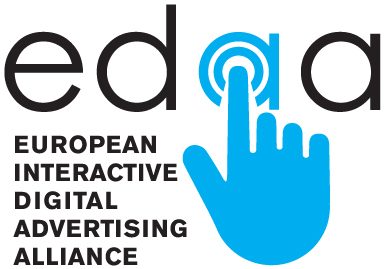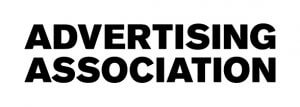Interview with Konrad Shek, Director of Policy Research at the Advertising Association in the UK.

What are the main challenges for the ad industry in the UK in 2021?
The COVID-19 pandemic has been a major challenge for the industry and the economy more broadly. According to Advertising Association/WARC figures ad spend growth in 2020 is expected to show contraction of 7.9% compared to the previous year. Cinema and Out of Home advertising were some of the hardest hit sectors with the lockdown measures in place. On top of this here in the UK we have been hit by a potential online HFSS (High in Fat, Salt and Sugar) ad ban and a review of gaming and betting advertising.
But as the vaccination rollout accelerates and lockdown measures ease, there are signs that better days are ahead. We want to not only build back, but build back better, hence our programme of work this year will have a particular focus on climate change, diversity & inclusion and trust in advertising.
“Advertising without trust is just noise”
Climate Action is a key part of our responsibility agenda and there is a strong willingness from industry to reduce emissions, but we know advertising accelerates behaviour change and can be a real force for helping drive sustainable growth and social good. We launched Ad Net Zero in November last year, our new industry-wide initiative to reduce UK advertising’s carbon impact to real net zero by the end of 2030. We also launched AdGreen in September 2020, our zero carbon and zero waste standard for ad production.
Searching questions were asked globally last year about inclusion and representation, driven by the momentum of the Black Lives Matter movement. The strength of UK advertising lies in our diversity of creativity and the diversity of our thinking, but the Advertising Association has been determined to do more on this front. Last year, we set up our new Inclusion Group, and most recently we launched our All-In Census, which, for the first time will provide industry leaders with comprehensive data on how the industry is performing on inclusivity.
Declining public trust in advertising still remains an issue and goes way beyond the pandemic and we have been doing extensive research on the drivers for this. Our President, Keith Weed, likes to use the phrase “trust or bust”, but he has been keen to point out that advertising without trust is just noise. We have been doing a lot of research in this area and we have a regular tracker to measure performance against the actions we’ve taken.
Where does Brexit fit in? How do industry association actors like the Advertising Association view the wider European developments; and how are they engaging with those developments?
Brexit is very much part our wider economic and exports agenda. I expect it will require some time to adjust from being inside the Single Market to the new trading rules established under the Trade & Cooperation Agreement signed by the UK and the EU. But that is not to say that what happens in the EU is no longer relevant to the UK. The EU is still the largest export market for the UK and given its proximity to the UK it will remain a key market for advertising exports.
The Advertising Association remains fully engaged in Europe. We are heavily involved in the Advertising Information Group (AIG), a network of European advertising and media associations that brings together different parts of the advertising industry, from advertising agencies to broadcaster and publisher bodies, direct marketing, radio and online, to discuss issues that affect advertising in Europe. And it is through AIG that we have a seat on the EASA (European Advertising Standards Alliance) Executive Committee. It is a testament that, despite Brexit, these relationships have remained strong.
Any thoughts on the progress of the ePrivacy dossier, or initial thoughts around the introduction of the Digital Services Act?
As you may be aware, the e-Privacy file has moved to trilogue and so the challenge now is for the three institutions of the EU to be able to come to a compromise on the final draft of the e-Privacy regulation.
We appreciate the progress on the e-Privacy file achieved over the years in the Council, and most notably some positive changes introduced by the Portuguese Presidency. Such improvements highlight the Council’s commitment to finding a workable outcome that takes into account both the confidentiality of communications and the sustainability and freedoms of the industry. There are some residual concerns over the language contained in the Council draft of the e-Privacy Regulations and the effect it may have over publishers and how they monetise their content through advertising, as well as telemarketers and their ability to make marketing calls even though a customer may have already consented to receiving them.
On the Digital Services Act (DSA), we understand the need to update the e-Commerce Directive to reflect the current digital landscape. The e-Commerce Directive was promulgated in 2000 and back then we probably didn’t foresee or predict some of the rapid advancements in digital technology. The key issue for us is that the DSA does not undermine the self-regulatory regimes built up by national self-regulatory organisations across Europe.
This package of proposals is heavily consumer focused. Where do consumer-facing industry initiatives like the EDAA self-regulatory programme ‘fit in’ with the latest challenges and opportunities?
One of the objectives of the DSA is to increase transparency of advertising so in that sense the EDAA with its AdChoices icon is well place to rise to the challenge. Giving consumers greater control and understanding about why they are seeing certain ads, I think, fits in with the wider trust agenda.
What are your thoughts on the UK Education Campaign released by EDAA and Media Smart in Q4 2020?
I think the education campaign released by EDAA and Media Smart was an innovative and creative resource for 7-16 years to better understand how interest-based advertising works and also the value exchange between the free internet funded by ads. I think this educational campaign fits well within the UK’s wider strategy of boosting media literacy skills, as I believe it is important young people develop the skills to confidently navigate the media they consume. Critical thinking is a core life skill which will serve them well in the future.
What are some of the key takeaways from RESET 2021?
RESET 2021 was a special virtual event that took place on 28 January, in place of LEAD our usual annual conference. This was also the first time that the Advertising Association, the Institute of Practitioners in Advertising (IPA) and the Incorporated Society of British Advertisers (ISBA) joined forces to deliver an event like this. Oliver Dowden, the Secretary of State for digital, culture and sport gave a keynote speech.
Some of the key takeaways from RESET 2021 include
- industry has shown resilience and shown its ability to adapt to change.
- the importance of communication and the power of messaging to enact behavioural change.
- industry has been working hard on how to reset and build back better.
- embracing more inclusion and diversity will be key to the recovery
—
Find out more about the work of the Advertising Association here.







